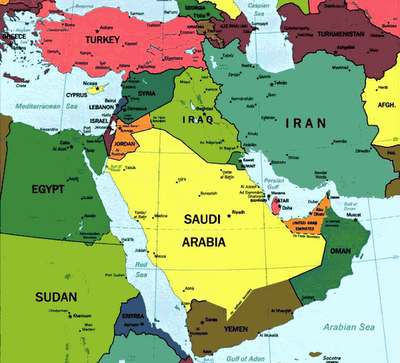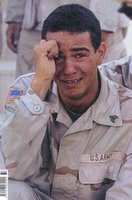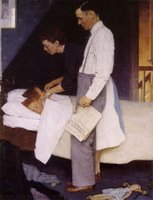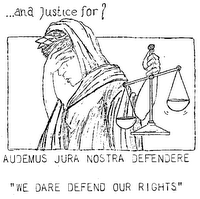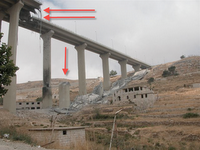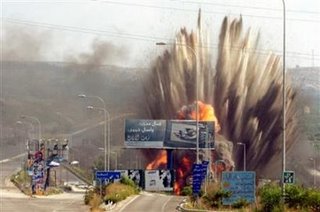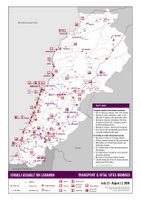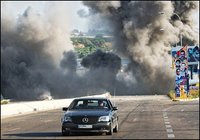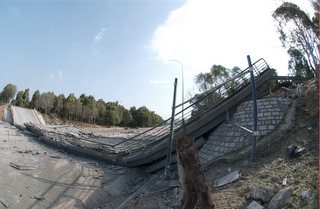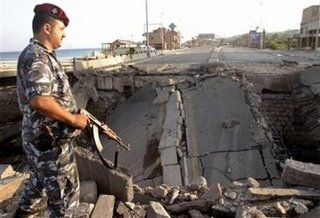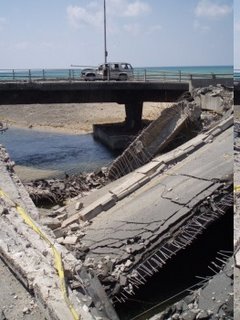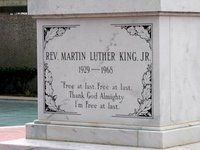
If you're reading this you probably know about network neutrality* and are ready to take action "For" Network Neutrality. The following list identifies the US Senators who are are undecided, and thus whose votes will swing the final outcome on Net Neutrality.
What to Do: Contact their offices. Ask for the staff person who covers telecommunicaitons issues, and urge them to vote for Network Neutrality.
Senator Contact Information
What to Say: If asked, the basic reason to suupport Network Neutrality is to ensure everyone's information that travels on the Internet is handled the same way regardless of one's level of wealth (no fast lanes, no toll booths). Network Neutrality helps ensure everyone's speech is on a level playing field, which is critical to the health of our democracy:
Swing Voters on Net Neutrality in the Senate
Alexander, Lamar (R-TN) 202-224-4944
Allard, Wayne (R-CO) 202-224-5941
Baucus, Max (D-MT) 202-224-2651
Bennett, Robert F. (R-UT) 202-224-5444
Bond, Christopher S. (R-MO) 202-224-5721
Brown, Sherrod (D-OH) [New]
Bunning, Jim (R-KY) 202-224-4343
Burr, Richard (R-NC) 202 224-3154
Byrd, Robert C. (D-WV) 202-224-3954 CONTACT
Cardin, Ben (D-MD) [New]
Carper, Thomas (D-DE) 202-224-2441
Casey, Bob Jr. (D-PA) [New]
Chambliss, Saxby (R-GA) 202-224-3521
Coburn, Tom (R-OK) 202 224-5754
Cochran, Thad (R-MS) 202-224-5054
Collins, Susan (R-ME) 202-224-2523
Conrad, Kent (D-ND) 202-224-2043
Corker, Bob (R-TN) [New]
Cornyn, John (R-TX) 202-224-2934
Crapo, Mike (R-ID) 202-224-6142
Dole, Elizabeth (R-NC) 202-224-6342
Domenici, Pete V. (R-NM) 202-224-6621
Durbin, Richard J. (D-IL) 202-224-2152 CONTACT
Enzi, Michael (R-WY) 202-224-3424
Graham, Lindsey (R-SC) 202-224-5972
Grassley, Charles E. (R-IA) 202-224-3744
Gregg, Judd (R-NH) 202-224-3324
Hagel, Chuck (R-NE) 202-224-4224
Hatch, Orrin G. (R-UT) 202-224-5251
Inhofe, James M. (R-OK) 202-224-4721
Isakson, Johnny (R-GA) 202 224-3643
Johnson, Tim (D-SD) 202-224-5842
Klobuchar, Amy (D-MN) [New]
Kohl, Herb (D-WI) 202-224-5653
Kyl, Jon (R-AZ) 202-224-4521
Landrieu, Mary (D-LA) 202-224-5824
Levin, Carl (D-MI) 202-224-622 CONTACT
Lincoln, Blanche Lambert (D-AR) 202-224-4843
Lugar, Richard G. (R-IN) 202-224-4814
Martinez, Mel (R-FL) 202 224-3041
McCaskill, Claire (D-MO) [New]
McConnell, Mitch (R-KY) 202-224-2541
Menendez, Robert (D-NJ) 202-224-4744
Mikulski, Barbara A. (D-MD) 202-224-4654 CONTACT
Murkowski, Lisa (R-AK) 202-224-6665
Murray, Patty (D-WA) 202-224-2621
Reed, Jack (D-RI) 202-224-4642
Roberts, Pat (R-KS) 202-224-4774
Salazar, Ken (D-CO) 202 224-5852
Sessions, Jeff (R-AL) 202-224-4124
Shelby, Richard C. (R-AL) 202-224-5744
Specter, Arlen (R-PA) 202-224-4254 CONTACT
Stabenow, Debbie A. (D-MI) 202-224-4822
Tester, Jon (D-MT) [New]
Thune, John (R-SD) 202 224-2321
Voinovich, George (R-OH) 202-224-3353
Warner, John W. (R-VA) 202-224-2023
Webb, Jim (D-VA) [New]
Whitehouse, Sheldon (D-RI) [New]
Positions of Other Senators
Senator DC Phone Stance For or Against Net Nutrality
Akaka, Daniel K. (D-HI) 202-224-6361 For
Allen, George (R-VA) 202-224-4024 Against
Bayh, Evan (D-IN) 202-224-5623 For
Biden, Jr., Joseph R. (D-DE) 202-224-5042 For
Bingaman, Jeff (D-NM) 202-224-5521 For (Switched since Aug 06)
Boxer, Barbara (D-CA) 202-224-3553 For
Brownback, Sam (R-KS) 202-224-6521 Against
Cantwell, Maria (D-WA) 202-224-3441 For
Clinton, Hillary (D-NY) 202-224-4451 For
Coleman, Norm (R-MN) 202-224-5641 Against (Switched since Oct 06)
Craig, Larry E. (R-ID) 202-224-2752 Against
DeMint, Jim (R-SC) 202 224-6121 Against
Dodd, Christopher J. (D-CT) 202-224-2823 For
Dorgan, Byron L. (D-ND) 202-224-2551 For
Ensign, John (R-NV) 202-224-6244 Against
Feingold, Russell D. (D-WI) 202-224-5323 For
Feinstein, Dianne (D-CA) 202-224-3841 For
Harkin, Tom (D-IA) 202-224-3254 For
Hutchison, Kay Bailey (R-TX) 202-224-5922 Against
Inouye, Daniel K. (D-HI) 202-224-3934 For
Jeffords, James M. (I-VT) 202-224-5141 For
Kennedy, Edward M. (D-MA) 202-224-4543 For (Switched since Aug 06)
Kerry, John F. (D-MA) 202-224-2742 For
Lautenberg, Frank (D-NJ) 202-224-3224 For
Leahy, Patrick J. (D-VT) 202-224-4242 For
Lieberman, Joesph I. (D-CT) 202-224-4041 For (Switched since Oct 06) CONTACT
Lott, Trent (R-MS) 202-224-6253 Against
McCain, John (R-AZ) 202-224-2235 Against
Nelson, Bill (D-FL) 202-224-5274 For
Nelson, Ben (D-NE) 202-224-6551 For
Obama, Barack (D-IL) 202 224-2854 For
Pryor, Mark (D-AR) 202-224-2353 For
Reid, Harry (D-NV) 202-224-3542 For
Rockefeller, John D. (D-WV) 202-224-6472 For
Schumer, Charles (D-NY) 202-224-6542 For
Smith, Gordon (R-OR) 202-224-3753 Against
Snowe, Olympia (R-ME) 202-224-5344 For
Stevens, Ted (R-AK) 202-224-3004 Against
Sununu, John (R-NH) 202-224-2841 Against
Thomas, Craig (R-WY) 202-224-6441 Against
Vitter, David (R-LA) 202 224-4623 Against
Wyden, Ron (D-OR) 202-224-5244 For
Out of Office As of Jan. 2007:
Burns, Conrad R. (R-MT) 202-224-2644 Against
Chafee, Lincoln D. (R-RI) 202-224-2921
Dayton, Mark (D-MN) 202-224-3244 For
DeWine, Mike (R-OH) 202-224-2315
Frist, William H. (R-TN) 202-224-3344
Santorum, Rick (R-PA) 202-224-6324
Sarbanes, Paul S. (D-MD) 202-224-4524
Talent, Jim (R-MO) 202-224-6154
For More Information Visit "Save The Internet:"Web LINK
Notes:
* Network Neutrality is the fundamental principle that ensures I don't have to pay an extra fee for this web page to be as rapidly down-loaded as any other similarly designed web page on the Internet. Said another way, Net Neutrality ensures everyone has equal access to the Internet, rather than having to pay cable and phone compaines an added fee to ensure that your information flows over the Internet unimpeded.
